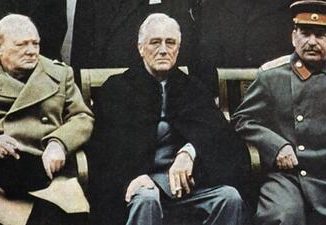
President Donald Trump warned that if the Nigerian government continues to allow Christians in the country to be killed, the United States military “may very well” go into Nigeria “guns-a-blazing.”
Published November 2, 2025
Former President Donald Trump has issued a striking warning to Nigeria over the killings of Christians, suggesting that the United States could take military action if the West African nation does not confront the violence. Posting on his social platform on November 1, 2025, Trump wrote that the U.S. “may very well go into that now disgraced country, ‘guns-a-blazing’ … to completely wipe out the Islamic Terrorists who are committing these horrible atrocities.”
Trump also indicated that he was directing the “Department of War” — a rhetorical reference to the Department of Defense — to prepare for possible action. He further threatened to stop all aid and assistance to Nigeria immediately if the government failed to protect Christians from ongoing attacks.
Background on Nigeria’s Security Situation
Nigeria, Africa’s most populous nation with over 230 million people, has long faced multiple security challenges. In the northern and central regions, communities have been caught in a deadly mix of insurgency, ethnic clashes, and criminal violence.
-
Boko Haram and its offshoot, the Islamic State West Africa Province (ISWAP), have carried out frequent attacks on civilians, targeting both Christians and Muslims.
-
Herder-farmer conflicts in central Nigeria have escalated, leading to hundreds of deaths annually. These conflicts are often framed along religious lines, although they also involve competition over land and resources.
-
Reports indicate that Christians in Nigeria’s North and Middle Belt regions have been victims of targeted killings, abductions, and destruction of churches, though the exact scale is debated.
Trump’s administration labeled Nigeria a “Country of Particular Concern” under U.S. religious freedom law, citing “systemic violations of religious freedom” against Christians. This designation signals heightened attention and potential consequences from the U.S. government if the situation does not improve.
Details of Trump’s Threat
Trump’s warning was unusually direct and forceful for U.S. foreign policy rhetoric:
-
He framed the potential military intervention as a moral imperative, emphasizing the protection of Christians abroad.
-
The phrase “guns-a-blazing” drew international attention for its dramatic and aggressive tone.
-
By threatening to halt all U.S. aid and assistance, Trump emphasized the use of economic leverage alongside potential military options.
-
His post explicitly blamed Islamic terrorists operating in Nigeria for committing “horrible atrocities” against Christians, portraying the violence as part of a broader religious persecution crisis.
Nigeria’s Response
The Nigerian government has rejected Trump’s claims, emphasizing its commitment to protecting citizens of all faiths:
-
President Bola Ahmed Tinubu stated that Nigeria “opposes religious persecution and does not encourage it.”
-
Nigerian officials highlighted the complexity of the violence, noting that attacks often stem from multiple overlapping factors, including insurgency, ethnic tensions, and criminal gangs, not exclusively religious motives.
-
Analysts caution against reducing the situation to a singular narrative of Christian genocide, urging a broader understanding of Nigeria’s security challenges.
Despite these denials, the Nigerian government faces increasing international scrutiny as the U.S. and global media continue to spotlight the issue.

Boko Haram has been slaughtering Christians as well as Muslims they regard as ‘apostates’ for failing to comport with their brand of Islam.

Coffins are seen arranged inside a hall during a mass memorial service for victims of an attack

Nigerian President Bola Ahmed Tinubu has fought back against Trump’s characterization that the country is religiously intolerant
 Implications
Implications
1. U.S. Foreign Policy Shift Toward Moral Interventionism
Trump’s declaration that the U.S. could go into Nigeria “guns-a-blazing” marks a return to moral-driven intervention rhetoric, where foreign action is justified not by direct American security threats, but by moral outrage — in this case, the killing of Christians.
-
This represents a potential departure from non-interventionist realism, signaling that U.S. military power might again be used to defend religious freedom or humanitarian causes abroad.
-
If implemented, it could set a new precedent for using the U.S. military in defense of persecuted religious groups globally, especially Christians in conflict zones.
2. Heightened Tension in U.S.–Africa Relations
The statement risks souring relations with Nigeria, one of Africa’s largest democracies and key U.S. allies in counterterrorism.
-
Nigeria could interpret the comments as a violation of sovereignty — a foreign power threatening invasion over internal issues.
-
Other African nations may view this as Western paternalism, reviving old colonial-era sensitivities.
-
Regional blocs like the African Union might rally behind Nigeria, seeing the threat as destabilizing to continental unity.
3. Domestic Political Resonance in the U.S.
Domestically, Trump’s message appeals to evangelical and conservative Christian voters, reinforcing his image as a defender of Christianity worldwide.
-
It strengthens his standing among faith-based groups who see global Christian persecution as a top moral concern.
-
However, critics could interpret the rhetoric as reckless and inflammatory, risking unnecessary conflict and undermining diplomacy.
-
The issue could become a flashpoint in American politics, dividing those who support moral interventions and those who advocate restraint.
4. Diplomatic and Legal Ramifications
-
Any actual U.S. military intervention in Nigeria would require Congressional authorization, as Nigeria poses no direct threat to the United States.
-
Such an action could spark international legal challenges, especially under U.N. Charter provisions protecting sovereignty and non-interference.
-
Allies in Europe and within NATO might distance themselves from such a move, wary of endorsing unilateral U.S. interventions without multilateral backing.
5. Risk of Destabilizing Nigeria’s Security Balance
Nigeria is already battling multiple armed threats — Boko Haram, ISWAP, herder-farmer conflicts, and local militias.
-
A perceived U.S. military threat could rally nationalist or Islamist factions, who might exploit anti-Western sentiment.
-
It could undermine the Tinubu administration’s legitimacy, portraying the government as weak or dependent on foreign powers.
-
Even without an invasion, aid suspension could hurt local counterterrorism funding, worsening instability in vulnerable regions.
6. Global Religious-Freedom Policy Reframed
Trump’s statement positions religious freedom — particularly the defense of Christians — as a central axis of foreign policy rather than a diplomatic talking point.
-
It challenges the more balanced approach of treating all faiths’ persecution equally, which may raise questions from Muslim-majority allies.
-
This could inspire similar stances among Western populist movements, framing Christian persecution as a test of Western moral strength.
7. Precedent for Other “Humanitarian Triggers”
If the U.S. makes religious persecution grounds for military threats or aid cuts, it opens the door for similar policies elsewhere:
-
Myanmar (Rohingya), Pakistan (blasphemy laws), or China (Uyghurs, Christians).
-
The danger lies in policy inconsistency — deciding when and where to act could appear arbitrary or politically motivated.
8. Economic and Aid Consequences
-
Nigeria receives hundreds of millions in U.S. aid annually, focused on health, education, and security. Cutting that aid could weaken programs fighting disease and poverty.
-
A breakdown in relations may push Nigeria closer to China or Russia, nations eager to expand influence in Africa without religious-freedom conditions.
-
The move could therefore reduce U.S. strategic leverage on the continent in the long run.
9. Media and Global Perception
-
Trump’s “guns-a-blazing” phrasing will dominate headlines worldwide, projecting an image of aggressive American Christianity to both supporters and critics.
-
International media and human-rights groups are likely to debate whether this represents bold moral leadership or dangerous populist grandstanding.
10. Moral and Ethical Dimensions
At its core, the threat reopens a timeless question:
Should the U.S. use force to stop moral wrongs abroad — or would doing so create greater harm through chaos and resentment?
-
Supporters argue that inaction in the face of evil is moral cowardice.
-
Critics caution that military moralism often leads to long-term instability and civilian suffering.
 Overall Takeaway:
Overall Takeaway:
Donald Trump’s warning to Nigeria marks one of the most provocative foreign-policy statements of his new administration — a declaration that the United States may no longer remain a passive observer when Christians are under attack abroad. His “guns-a-blazing” rhetoric, while resonating deeply with supporters who see him as a defender of faith, also risks straining diplomatic ties, unsettling Africa’s political balance, and testing the boundaries of international law.
The move puts Nigeria — Africa’s most populous nation and one of America’s key security partners — in a delicate position: caught between defending its sovereignty and addressing mounting global concern over sectarian violence. If Washington follows through with aid cuts or military planning, it could disrupt regional stability and reshape U.S.–Africa relations for years to come.
Beyond geopolitics, Trump’s statement rekindles an old debate about America’s moral role in the world. Should the United States project its power to confront persecution and injustice — or should it exercise restraint, working through diplomacy and partnership instead of force?
What’s certain is that this episode signals a turning point: religious freedom is being placed at the center of American foreign policy once again. Whether that stance leads to protection and peace — or to confrontation and backlash — will depend on the next decisions from both Washington and Abuja.
SOURCES: BREITBART – Trump Warns U.S. Military ‘May Very Well’ Go into Nigeria ‘Guns-a-Blazing’ over Killing of Christians
DAILYMAIL ONLINE – Trump threatens military action against Nigeria over killings of Christians
THE EPOCH TIMES – Trump Threatens Nigeria With US Military Action If It Doesn’t Confront Killings of Christians
THE WASHINGTON TIMES – Trump threatens Nigeria with potential military action, escalates claim of Christian persecution





Be the first to comment